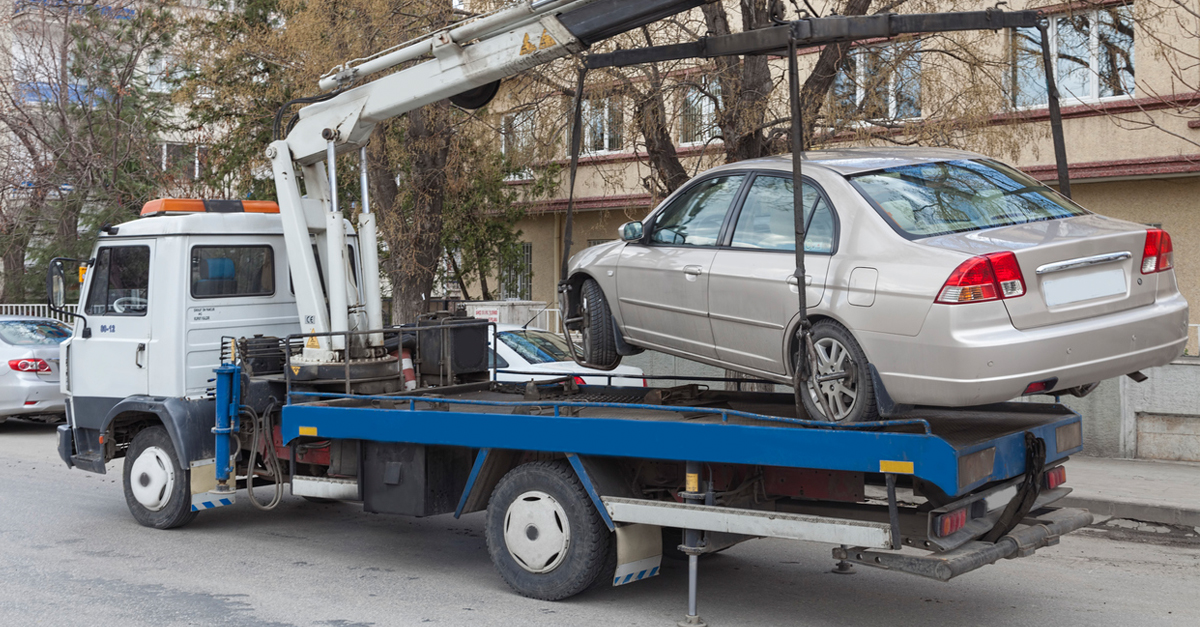
If you’re behind on your car payments, the finance company may repossess your vehicle to recover what you owe. While having your car towed is stressful, it’s just the beginning of your financial challenges. You’ll likely face additional costs and a remaining loan balance even after losing your vehicle. Here’s what you need to know about vehicle repossession and your options going forward.
Table of Contents
When Can The Lender Take My Car?
Repossession can happen whether you finance or lease your vehicle. For a leased car, the dealership retains ownership, and your lease agreement allows them to seize the vehicle if you miss payments. If you purchased your vehicle with a loan, you own it, but the lender has a secured lien against your car as collateral. When you default on payments, they have the right to take the car.
Lenders typically start considering repossession after 2-3 missed payments, though this can vary. While you’ll receive notices about missed payments, the lender doesn’t have to tell you when they’ll take your car. They can either repossess it involuntarily, or you can surrender it voluntarily.
What Happens When Your Car is Repossessed
The Repossession Process
Repo agents can legally take your car from your driveway, the street, parking lots, or other public spaces. However, they can’t enter a closed garage or use force. They must also return any personal belongings left in the vehicle – these aren’t part of the repossession.
After Your Car is Taken
Once they have your car, the lender will sell it at auction. Unfortunately, auction prices are usually well below retail value. The sale amount gets subtracted from your loan balance, but you’re still responsible for:
- The remaining loan balance
- Repossession costs
- Storage fees
- Legal fees
- Any late payment charges
The lender will report the repossession to credit bureaus, which stays on your credit report for seven years.
Bankruptcy and Car Repossession
Can Bankruptcy Stop a Repossession?
Filing bankruptcy won’t stop a repossession because car lenders are secured creditors. Their right to take the car continues even during bankruptcy. However, a consumer proposal or bankruptcy can help by eliminating other debts, freeing up money to catch up on car payments if you want to keep your vehicle.
Dealing with Loan Deficiency
Unfortunately, the repossession process does not cancel your obligation to make payments under the loan or lease agreement. Any deficiency in realizations after the sale of the vehicle is now an unsecured debt you still owe to your car loan lender.
If your car has already been repossessed, bankruptcy or a consumer proposal can eliminate your responsibility for the remaining car loan balance. About 10% of Canadian insolvencies involve vehicle loan deficiencies, so you’re not alone if you need this type of help.
Need Car Loan Relief?
How to Stop Your Car From Being Repossessed
The only way to avoid repossession is to make payment arrangements with your lender. Any payment plan will require you to catch up on your car payment arrears and repay any repossession fees and recovery costs they may have incurred. It’s best to act quickly when you start struggling with payments:
- Contact your lender immediately
- Ask about payment arrangements
- Explain your situation and when you can catch up
- Get any agreement in writing
- Consider selling the car yourself if you can’t afford it
- Talk to a Licensed Insolvency Trustee about debt relief options
Again, filing an insolvency proceeding with a Licensed Insolvency Trustee to eliminate other debts like credit cards, payday loans, and overdue bill payments can free up enough money so you can afford your car loan payments.
Getting your car repossessed doesn’t have to lead to ongoing financial problems. If you’re struggling with car loan debt and other financial challenges, contact Hoyes Michalos for a free consultation. Our Licensed Insolvency Trustees can help you understand your options and find the best solution for your situation.
Do You Still Owe Money After Car Repossession?
Yes, you remain responsible for the loan balance even after repossession. The lender will sell your car and apply the proceeds to your loan, but you must pay any remaining balance plus repossession costs and fees.
Can You Get Your Car Back After Repossession?
Yes, you can get your car back if you act quickly and pay all missed payments, repossession costs, and storage fees. This is called “redeeming” the vehicle, but it must be done before the lender sells the car.
Does The Statute of Limitations Prevent Repossession?
No, the two-year statute of limitations doesn’t prevent repossession since this is a secured debt. However, if the lender wants to sue you for any remaining balance after selling the car, they must do so within two years of your last payment.





